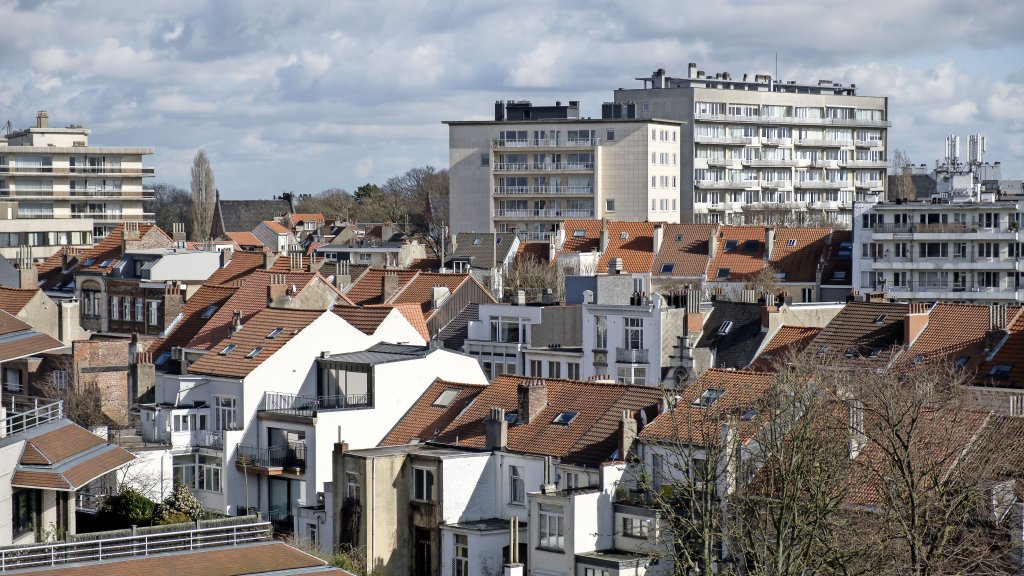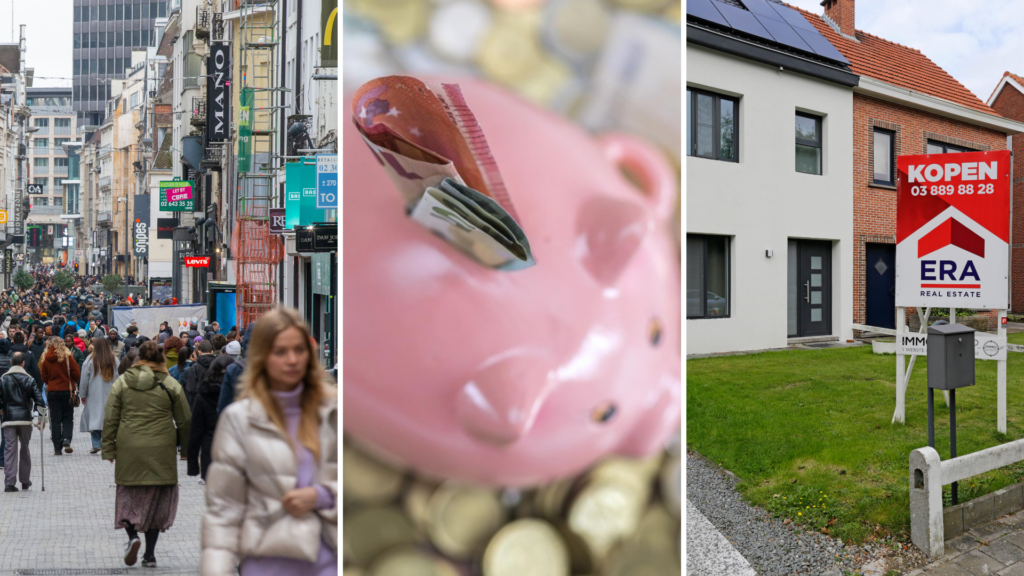When it comes to median wealth, households in Belgium are remarkably better off than many other Europeans. However, inflation has seen wealth and purchasing power slump, especially among the lowest-income households.
It is no secret that, generally speaking, people in Belgium are well off. Last year, the country took first place in a global ranking of median wealth with €228,594 per adult. This means that half of Belgians have more than this amount in wealth assets and the other half less.
A more recent study by Keytrade Bank and Ghent University found this figure was even higher. Researchers said the wealth of the median Belgian household – including money in the bank account, property, car and possible businesses they own – is €249,301, based on 1,903 responses. This figure is almost twice that of the European median (€123,500 in 2021).
The researchers used the median as a benchmark because "the largest assets pull the average upwards, creating large differences in the distribution of wealth". This is clear when comparing the figures, as the average wealth in the country is €437,273, almost €200,000 more than the median wealth.
"Thus, Belgian's wealth is not distributed according to a normal distribution." In the country, more than two million people in the country live in poverty or are financially insecure, while the wealthiest 10% of Belgian households own 55% of the country’s net wealth.
Accumulating wealth and property investments
The wealth of people in Belgium does not remain steady throughout their lives but is instead accumulated over the years. The median wealth of the youngest age group (18- to 34-year-olds) is the lowest at €121,426. "People in their twenties and young thirties start their careers and lay the foundation for their wealth later on," the researchers noted.
Wealth then peaks at €340,050 around retirement age – "at that point, people have paid off their houses and the children have left home" – before declining after retirement, in line with a declining income. Wealth is then "eaten up" during old age, explained by retirement home costs and the fact people start making gifts to (grand)children to avoid inheritance tax. "We are poorer when we are young, become richer when we reach middle age reach middle age, only to become poorer again towards the end of our lives."
The level of education also has a major impact on wealth. The assets of people with a lower level of education are almost half that of people with a bachelor's degree and more than half of that of people with 'masters' degrees. "So financially speaking, a degree remains well worth an investment," researchers said.

Most of people's wealth is accounted for by the property they own. Credit: Belga
More than half ( 59%) of people's wealth is accounted for by the house they live in, confirming the stereotype of Belgians having a brick in their stomach [referring to the fact that all citizens aspire to build their own house someday]. Between the ages of 35 and 75, more than eight in 10 Belgians own purchased homes.
"The median price of that family home comes to €292,600. Houses other than the family home (12.39%) and flats other than the family home (8.78%) further contribute to the large size of real estate in the Belgian's wealth."
Savings accounts account for the second-large proportion of Belgians' wealth (9.4%). On average, people in Belgium have more than €25,000 in savings, while around 40% of households have more than 12 times their net monthly income in savings accounts.
Finally, the richest 1% owe their wealth mainly to companies and real estate. Households in this category require a minimum wealth of €4.7 million for their household through these means.
Impact of inflation
While the median wealth in Belgium remains high, the researchers pointed out that inflation put a damper on things. Since 2021, wealth has risen by just 2.8%, considerably lower than inflation which was 9.6% in 2022 and 4.1% in 2023. "This indicates a real decline in capital over the past few years."
Another study using bank transaction data of 900,000 Belgian households by economists at UGent confirmed that purchasing power fell last year. The study, published on Thursday, looked at the evolution of purchasing power over the entire legislature of the Federal Government.
Researchers found that purchasing power has risen by an average of 1.4% from October 2020 to March this year. However, while in 2021 and 2022 there was a cumulative increase of 3.2%, since February 2023, there has been a decline of 1.8 percentage points that brought down the overall figure. Last year, since March 2023, purchasing power declined by 1.6%.
They explained this is wages and benefits are indexed when inflation rises. The indexation was significantly overestimated in 2021-2022, resulting in an "artificial increase in purchasing power", followed by an underestimation of inflation.
Related News
- Home ownership rises in Brussels, though renting remains most common
- Belgians see wealth grow by €62.5 billion again in year
The study highlighted that the increase in purchasing power was mainly among the high(er) incomes while there was no increase for people with the lowest incomes. Instead, they experienced a decrease in purchasing power during the entire coalition period. By the end of 2022, purchasing power in the lowest income quintile had risen 4.8%, but this was followed by a decline of 7.5 percentage points to -2.7%, and a further drop of 6.4% last year. Again, the method of indexation is the culprit.
The researchers concluded that this "may be an important factor of the growing anti-political sentiment and success of radical parties", while it also explains why many people in surveys are worried about their purchasing power.

